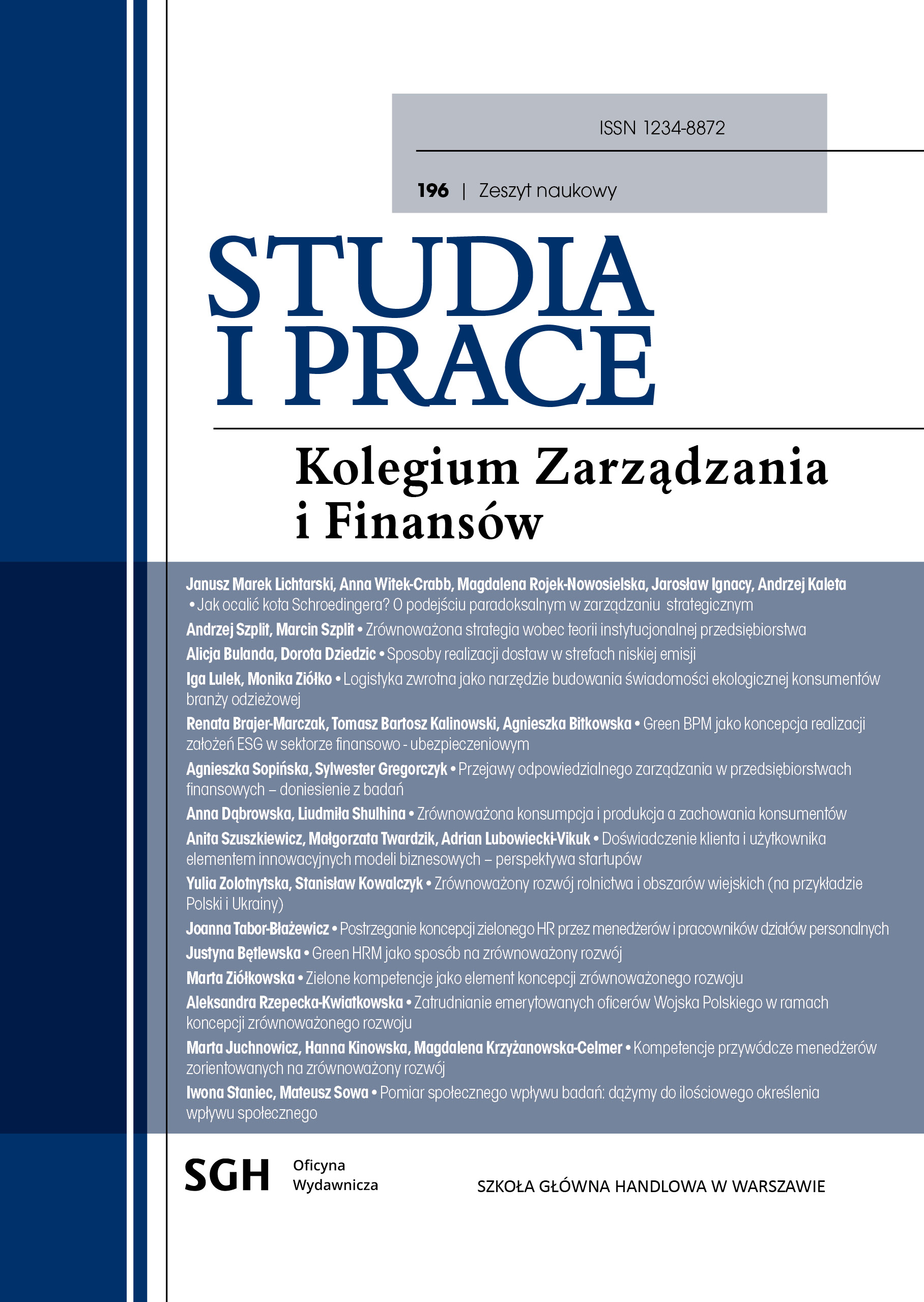Green competencies as an element of sustainable development
DOI:
https://doi.org/10.33119/SIP.2024.196.12Keywords:
competences, sustainable development, labour market, vocational trainingAbstract
The paper outlines the essence and importance of green competencies of employees in companies in the context of sustainable development. The definition and meaning of terms related to green jobs were reviewed, distinguishing important categories of occupations. An industry classification of green skills was presented, and foundational data relating to the demand for green jobs in Central and Eastern European countries was analyzed. The conclusions point to the most relevant competencies concerning sustainability and indicate that green jobs will require a combination of soft and technical skills and cross-cutting competencies of company employees.
Downloads
References
Wydawnictwa zwarte
European Centre for the Development of Vocational Training (CEDEFOP) (2019). Skills for green jobs. European synthesis report. Luxembourg: Publications Office of the European Union.
International Labour Organization (2012). World of Work Report. Geneva: International Labour Office.
Szczucka, A., Jelonek, M., Kocór, M., Krupnik, S., Krygowska-Nowak, N., Kwinta-Odrzywołek, J., Worek, B. (2023). Trendy kształtujące polskie branże i kompetencje przyszłości. Warszawa: Polska Agencja Rozwoju Przedsiębiorczości.
United Nations Environment Programme (2011). Towards a green economy: pathways to sustainable development and poverty eradication. Nairobi: United Nations Environment Programme.
Artykuły naukowe
Bassi, F., Guidolin, M. (2021). Resource Efficiency and Circular Economy in European SMEs: Investigating the Role of Green Jobs and Skills, Sustainability, 13, 12136.
Cabral, C., Dhar Lochan, R. (2019). Green Competencies: Construct Development and Measurement Validation, Journal of Cleaner Production, 235, s. 887–900.
Materiały internetowe
European Commission (2015). Closing the Loop: an EU Action Plan for the Circular Economy, 614 Communication from the Commission to the European Parliament, the Council, the European Economic and Social Committee, and the Committee of the Regions, Brussels, Belgium, http://eur-lex.europa.eu/legal-content/EN/TXT/?uri=CELEX:52015DC0614 (dostęp: 24.02.2024).
European Commission (2020). European skills agenda for sustainable competitiveness, social fairness and resilience, https://ec.europa.eu/social/main.jsp?catId=89&furtherNews=yes&newsId=9723&langId=en (dostęp: 24.02.2024). 3. Global Green Skills Report (2023). https://economicgraph.linkedin.com/content/dam/
me/economicgraph/en-us/global-green-skills-report/green-skills-report-2023.pdf (dostęp:24.02.2024).
International Labour Organization (2013). Meeting skill needs for green jobs: Policy recommendations, Inter-Agency Working Group on Greening Technical and Vocational Education and Training and Skills Development, https://unevoc.unesco.org/fileadmin/up/iwg_recommendations_for_g20.pdf (dostęp: 24.02.2024).
International Labour Organization (2019). Skills for a greener future: A global view based on 32 country studies, https://www.ilo.org/wcmsp5/groups/public/---ed_emp/documents/publication/wcms_732214.pdf (dostęp: 24.02.2024).
Downloads
Published
How to Cite
Issue
Section
License
Copyright (c) 2024 Studies and Work of the Collegium of Management and Finance

This work is licensed under a Creative Commons Attribution 4.0 International License.









